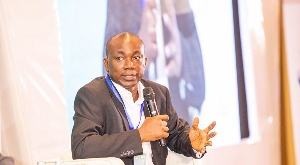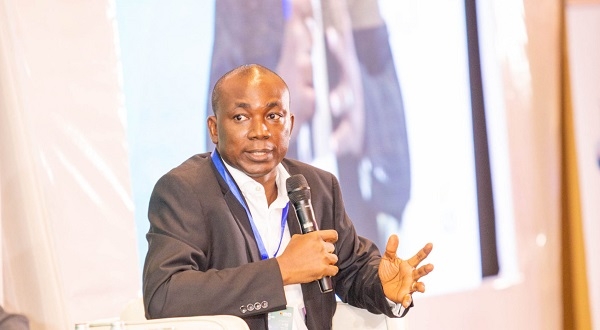 Professor Godfred Bokpin attributed these persistent challenges to governance failures
Professor Godfred Bokpin attributed these persistent challenges to governance failures
Economist Professor Godfred Bokpin has cautioned that Ghana’s ambitious 24-hour economy agenda could be unattainable without urgent reforms in the energy sector.
According to him, energy is the backbone of any economic transformation, yet Ghana currently struggles to provide reliable power even for a conventional eight-hour economy.
His comments follow the release of the 2024 State-Owned Enterprises (SOEs) performance report by the State Interests and Governance Authority (SIGA).
How Ghana’s SOEs fared in 2024 – SIGA report
“Nothing can happen in this country without energy. That’s how fundamental it is. We currently don’t have enough power to move an eight-hour economy, so to speak. We are talking about scaling up to a 24-hour economy,” Professor Bokpin said in an interview with JoyFM on September 1, 2025.
He explained that industrialisation and productivity growth depend heavily on cheap and reliable electricity. Without such reforms, he argued, both private and public sector competitiveness will continue to suffer.
“An inefficient public sector represents a cost to the private sector as we interact with the public sector. So, without addressing the energy sector and the needed transformation, I think we can’t be talking about a 24-hour economy or economic transformation. It’s as simple as that,” he stressed.
Professor Bokpin also pointed to troubling performance indicators in the power sector, noting that Ghana’s electricity collection rate stands at 85%, compared to the global average of 98%.
Meanwhile, the Electricity Company of Ghana (ECG) records system losses of 28%, far above the international benchmark of 16–20%.
“Across all the indicators, there isn’t much that gives you hope without drastic reforms, and we are not seeing those reforms. Even under this new regime, it’s coming down to business as usual,” he lamented.
The economist attributed these persistent challenges to governance failures, managerial incompetence, and entrenched procurement abuses within state-owned enterprises.
“You look at the ECG report, you will see where ECG has over-invested in some areas and under-invested in other critical areas, with idle inventory sitting for months or years. The reason is the procurement economy we have created within some of these enterprises that benefit politically exposed individuals. We see these reports day in and day out, but nothing gets done,” he noted.
Professor Bokpin emphasised that unless Ghana undertakes bold structural reforms in the energy sector, ambitions of industrialisation, structural transformation, and a 24-hour economy will remain out of reach.
SSD/MA
GhanaWeb’s latest documentary, Sex for Fish, which explores the plights of teenage girls in coastal communities, all in an attempt to survive, is out. Watch it below:

